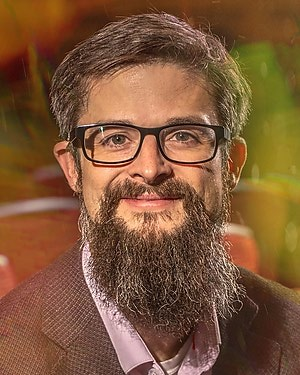Takeaway
Patients may ask about using psilocybin to stop smoking. While being actively studied, please remind them that it’s still illegal and not necessarily risk-free.

Lifelong learning in clinical excellence | November 2, 2022 | 2 min read
By Matthew Johnson, PhD, Johns Hopkins Medicine
My team and I have helped people quit smoking with an unusual method in clinical research. Using this odd method, we’ve had one former smoker quit after envisioning herself as a powerful vine growing toward the sky. Another former smoker saw countless pictures of herself smoking, like Any Worhol’s repeating images of “Campbell’s Soup Cans,” reinforcing the notion that it’s never the choice between smoking one cigarette or not, it’s the choice between smoking the rest of your life or not.
You may have heard about this unusual research, suggesting that the psychedelic compound psilocybin, which is the active agent in “magic mushrooms,” can help people quit smoking. We published a very small, non-randomized pilot study in 2014 showing very large success rates, for example, six months after quitting, 12 of the 15 patients (80%) were still smoke free, as versified by urine and breath samples. A currently-running follow-up study that is randomizing patients to either psilocybin treatment or nicotine patch treatment has continued to suggest high quit rates of psilocybin. These data have led to the first funding by the United States federal government for administering a classic psychedelic such as psilocybin for therapeutic purposes.
There are a number of important things for clinicians to know regarding this treatment. First, psilocybin is a Schedule 1 drug in the United states (and similarly illegal in most nations) forbidding even medical use. So, the only sanctioned use for medical purposes at this time is restricted to FDA approved clinical trials. Depending on future results, the FDA may approve psilocybin for medical use in clinics outside of research. At this time settings other than clinical research may come with legal risk.
Second, regardless of legality, there are inherent risks to psychedelics that studies address, including anxiety that can constitute a “bad trip” that can sometimes result in accidents. Some people, like those predisposed to psychotic disorder or severe heart disease, might be put at risk by psychedelics.
Another misconception is that this is like methadone for smoking. “Oh, I guess it’s easy to not smoke if you’re tripping all day,” you might think. It’s important to realize that in our research we’ve only administered psilocybin one to three times in order to help people quit smoking. These psychedelic experiences only happen in the clinic, after preparation, and under supervision. The idea is to have a moving experience and learn something as a result of that experience, rather than to take the drug to continually suppress symptoms as with most psychiatric or addiction medications. To be sure, the research is promising, but it’s not quite ready for prime time yet. Stay tuned!
This piece expresses the views solely of the author. It does not necessarily represent the views of any organization, including Johns Hopkins Medicine.

